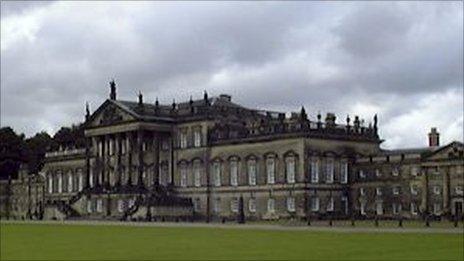Who holds the keys to our mansions?
- Published
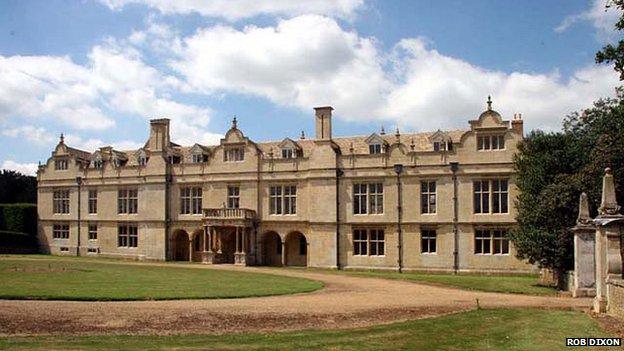
Apethorpe Hall was once a favourite haunt of King James I
A stately home which was once a haunt of the rich and royal has been sold to a French baron. It's the latest in a string of mansions sold to international buyers, raising questions about the safety of England's heritage. But does it matter who holds the keys?
Author Henry James once said: "Of all the great things that the English have invented and made part of the credit of the national character, the most perfect, the most characteristic, the only one they have mastered completely in all its details... is the well-appointed, well-administered, well-filled country house."
It was an opinion shared by many when the stately home was the highest symbol of aristocratic wealth. However, in the early 20th Century the English upper classes began to lose their grip on their palaces.
Not unlike the scenes in TV's Downton Abbey, the fight to save the country home was a very real concern for the landed gentry in the face of heavy taxation.
It was this chink in the armour of England's upper classes that gave some international buyers a first class ticket to tradition and class.
"At the beginning of the 20th Century there were a lot of historic houses and people married rich American wives," said Dr Timothy Brittain-Catlin, lecturer in architecture at the University of Kent.
"In the 1920s and 1930s there was a lot more money in America and if it wasn't for them, the houses would have been demolished.
"Everyone [here] was broke and houses weren't protected and many of them were bought up by people like [American] William Randolph Hearst.
"Some were remodelled and rebuilt and in England it led to a serious conservation lobby, so in a way it was a good thing because it made people aware."
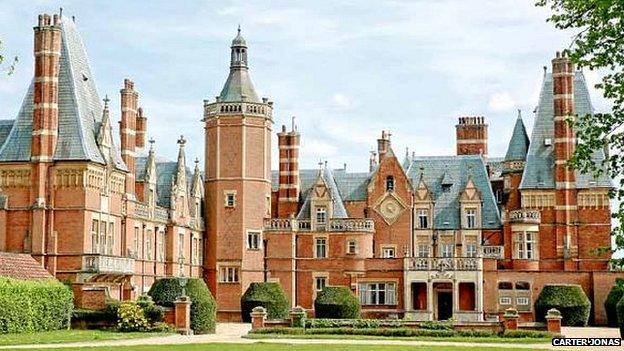
Minley Manor was sold by the Ministry of Defence for a figure exceeding the £5m guide price
It is estimated that between 1880 and 1980, about 2,000 country homes across England, Wales and Scotland were demolished. But the grass of the English countryside has always appeared greener to international buyers.
"A lot of people regard England as a safe haven of heritage," said Jasper Feilding, of property consultants Carter Jonas which dealt with the sale in November of Minley Manor in Hampshire.
"You can buy a schloss in Germany or a chateau in France which may be equally as important from a historical point of view.
"But they're not making any more country houses and if you're looking for a trophy property there's more kudos in buying something in England which has that historical importance."
There have been a number of high profile sales of country homes to overseas buyers in recent months.
A bidding war in January 2014 saw the sale of Hadspen House in Somerset to an international buyer - rumoured to be Hollywood star, Johnny Depp - for a reported, external £12m, while Dunstall Hall in Staffordshire was sold to a Middle Eastern businessman for £4m in July. In January of this year, Apethorpe Hall in Northamptonshire was sold to French academic, Baron von Pfetten.
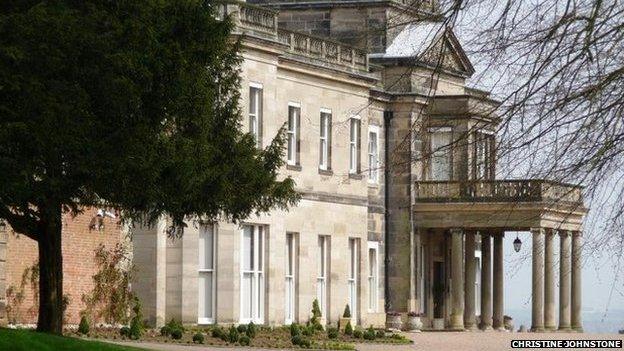
Dunstall Hall is just one in a long list of country properties bought by overseas buyers
"There's definitely been some kind of movement towards foreign buyers purchasing country houses and in recent months there has been something of a trend," said Mike Fox, from Save Britain's Heritage.
"Providing the houses don't suffer as a result of them being bought by international buyers, we've got no problem.
"But the concern is if they're just bought up as trophy properties and then left. There are a number of houses where that has happened."
Apethorpe, which was once a favourite haunt of King James I, is a prime example of a property left to rot.
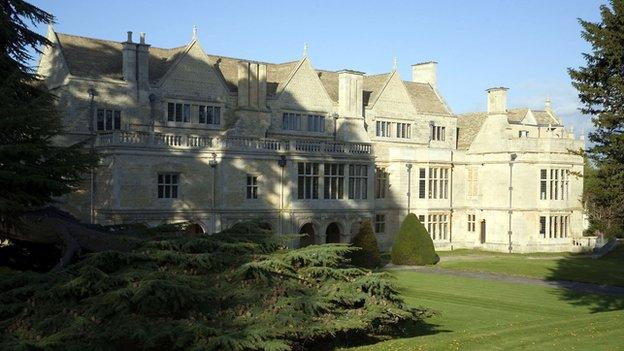
Apethorpe Hall's new owner said he hopes it will regain a place in British history
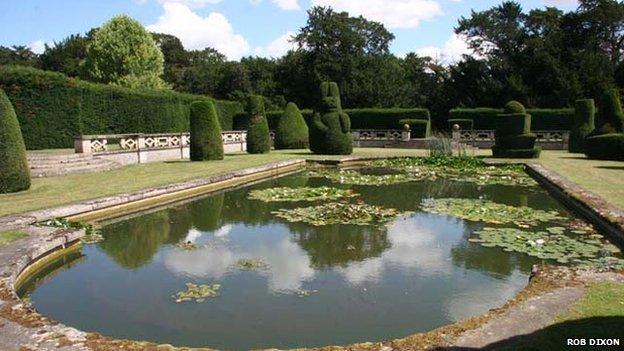
The grounds feature a number of green spaces including the sunken garden
The Jacobean country house was bought by a Libyan businessman in 1983, who neither lived in it or maintained it and left it to crumble for almost two decades.
It was eventually bought by the government in 2001 and handed to English Heritage in 2005, who sold it following £8m worth of restoration work.
Its new owner has agreed to open the doors to the public for 50 days a year to help it "regain the place in British history it deserves".
"The house was bought by a foreign owner who let it fall to pieces and now has another foreign owner," said Dr Brittain-Catlin.
"Conservationists will tell you that they have lost a manor, but on the other hand, an important house has now been saved by someone who is living in it and appreciates it.
"The [nationality] of the buyer isn't the important thing, it's that the buyer looks after it," he added.
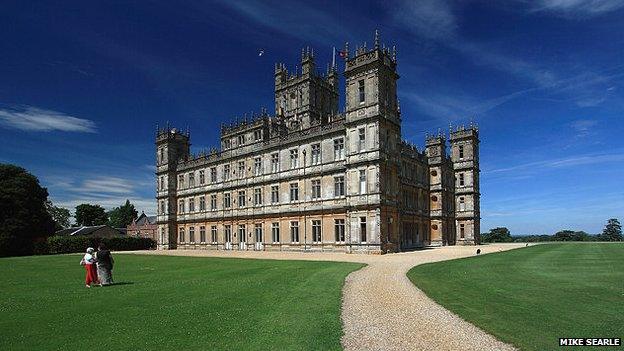
Highclere Castle has found fame as the home of Downton Abbey...
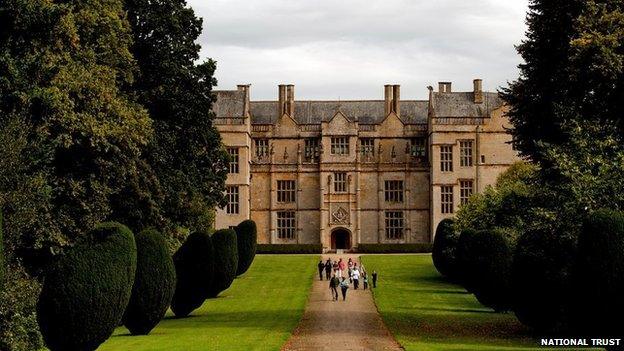
...while the grounds of Montacute House provided the backdrop for scenes in Wolf Hall
Despite attempts to preserve these quintessentially British properties, the Historic Houses Association says times are still tough for owners, with about 60% of members opening their homes to the public and offering them as film sets for TV programmes like Wolf Hall and Downton Abbey.
"These are very uncertain times for historic houses and gardens," said Richard Compton, president of the HHA. "Competition to attract visitors with disposable incomes has increased; at the same time, costs have also risen.
"Many historic house businesses face threats to their very survival."
A question mark currently hangs over the future of one of Europe's biggest private stately homes.
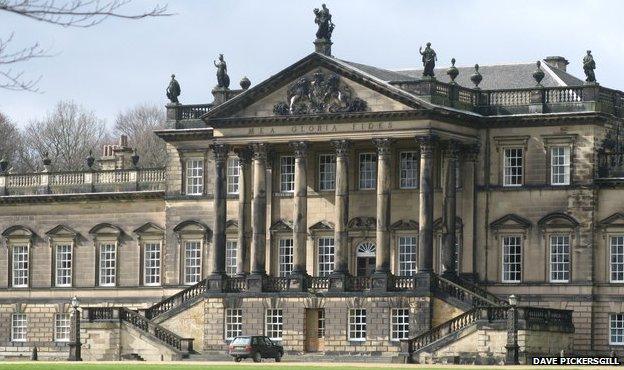
Wentworth Woodhouse requires millions of pounds worth of repairs
Wentworth Woodhouse, in South Yorkshire, has been open to the public for more than 25 years but its owners are planning to put the Grade I listed property on the market.
It means anyone who can afford the reputed £7m price tag plus the £40m needed for repairs could snap up a piece of England's heritage.
But Mr Fox hopes the house can be purchased by a preservation trust which has so far raised £3.5m in pledges.
"The family need to consider their options and that includes putting it on the market," he said, "But we remain confident we can do some kind of deal."
- Published21 January 2015
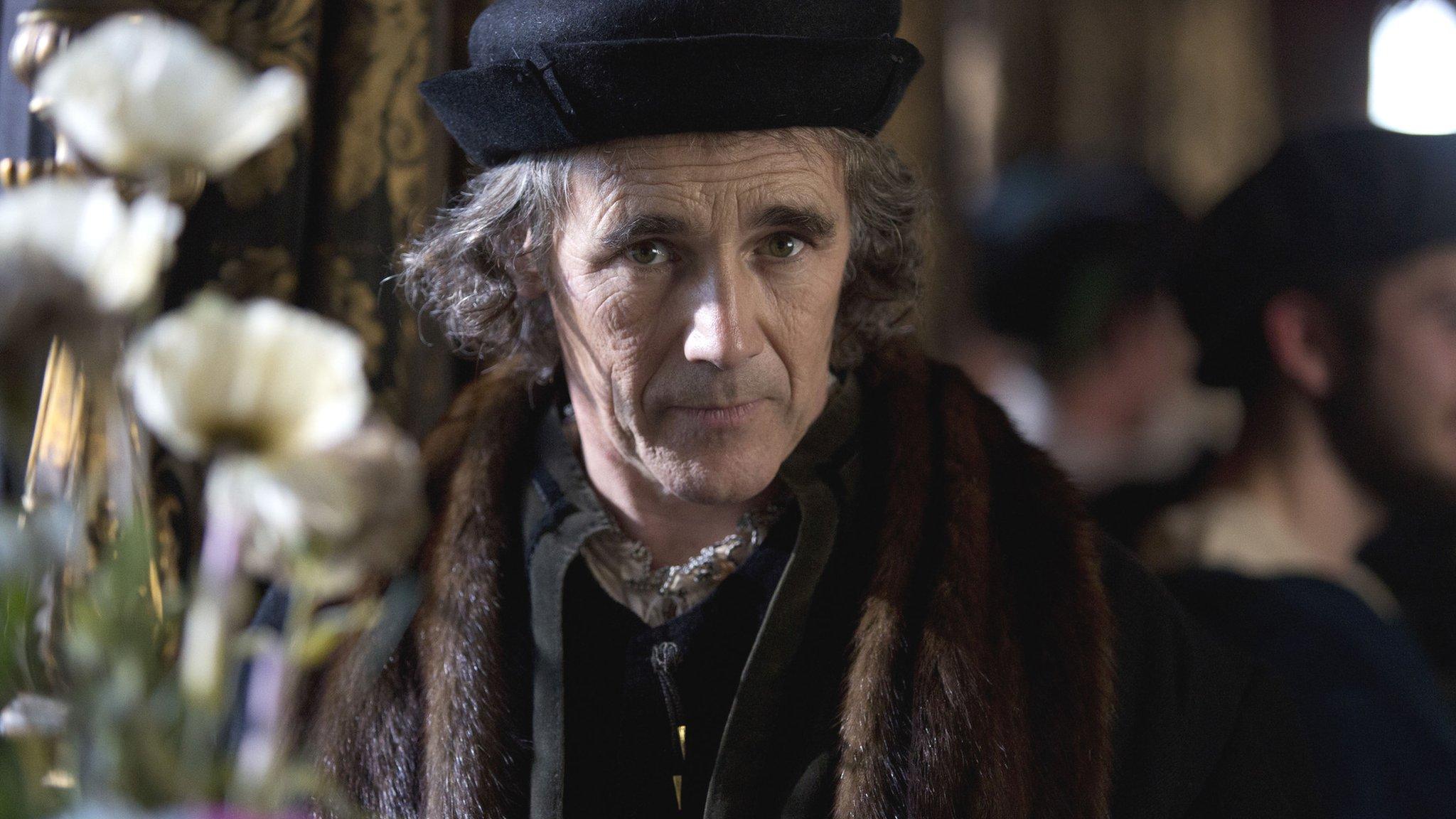
- Published7 January 2015

- Published29 November 2014
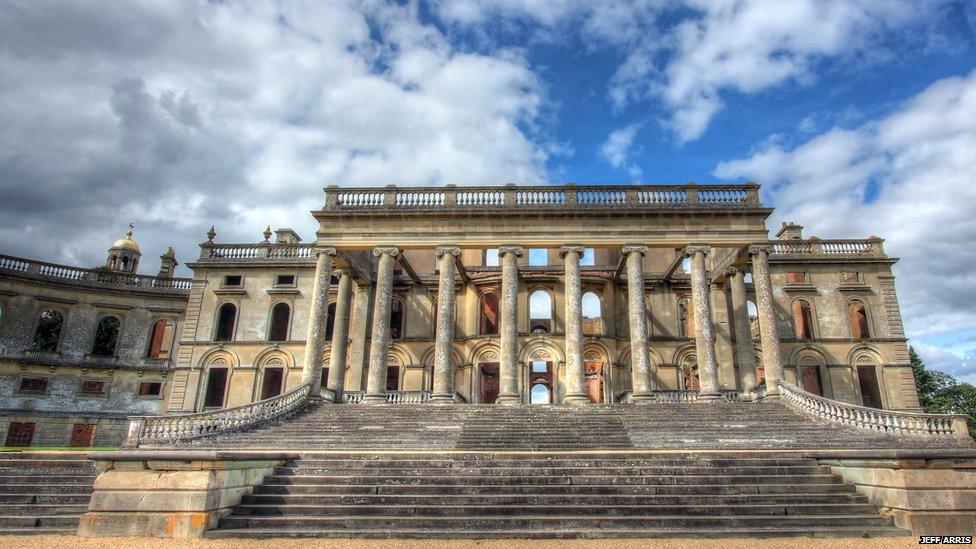
- Published17 March 2014
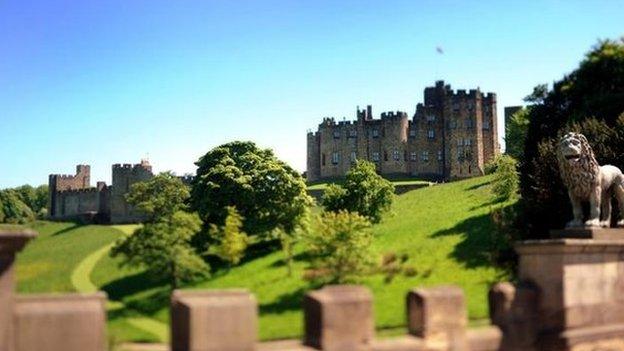
- Published23 May 2011
